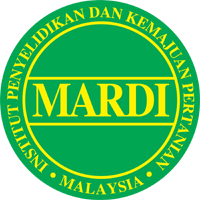L.S.H. Jeffrey, M.S.Umi Kalsom, A.R. Nor’Aini, S. Khozirah and H. Halizah
Abstract
Streptomyces griseus has been well known to be the primary producer of many humans and plants antibiotics known to humankind. A total of 210 isolates of actinomycetes from two well known reserved forest (Ayer Keroh Recreational Forest, Malacca and Crocker Range Park, Sabah) in Malaysia were tested for its antifungal capability against Colletotrichum capsici and Colletotrichum gloeosporioides. From the test conducted, only five isolates (2.4%) showed moderate antifungal ability. Streptomyces sp. AK25 has the highest inhibition zone, which was identified as S. griseus using its 16S-rRNA gene sequence. Morphology characterisation showed that S. griseus AK25 has a straight spore arrangement with a rough spore surface. However, S. griseus AK25 only utilised D-cellobiose, gentiobiose and D-raffinose as its carbon sources. Physiological test conducted showed that this strain was able to grow under high pH (pH 11), high NaCl content (4%) and high temperature (45 °C). Further test should be conducted to determine the feasibility of S. griseus AK25 on field application. This microbe will benefit the chilli growers in Malaysia if its antifungal ability is proven applicable for field usage.
Full text (2628 KB)








